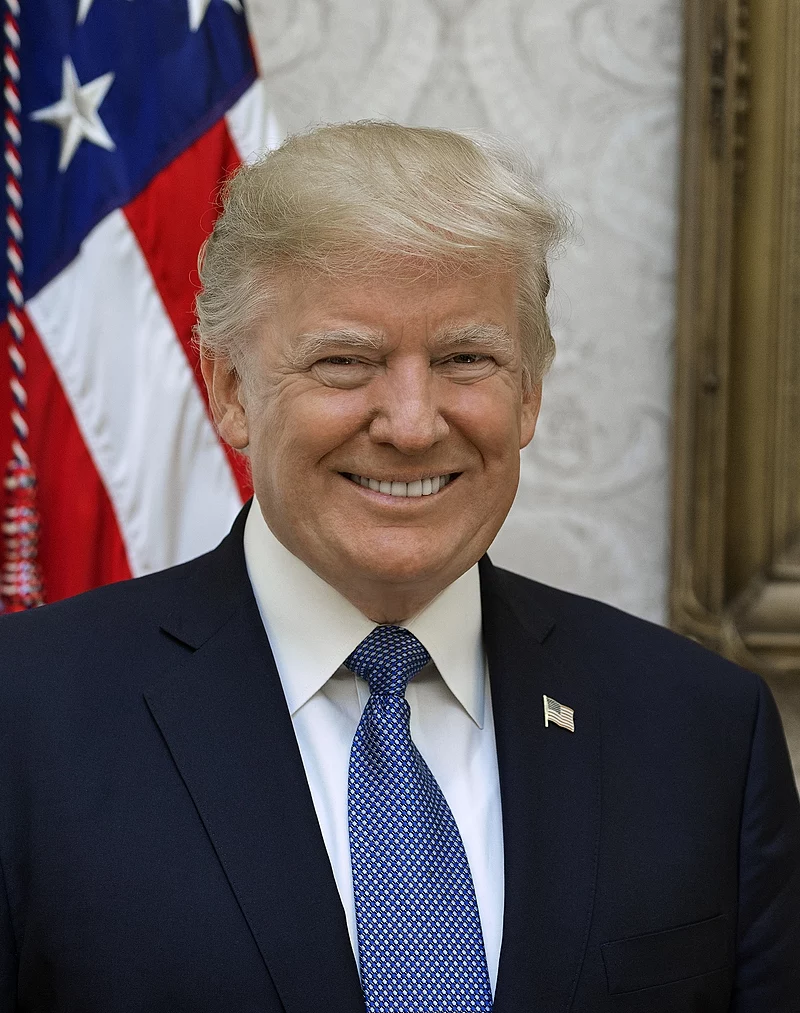Donald Trump, the 45th President of the United States, is one of the most controversial and influential figures in modern American politics. Known for his unconventional approach to governance, business background, and populist rhetoric, Trump’s rise to prominence has reshaped the political landscape in the United States and beyond. This article examines his background, key policies, presidency, and the ongoing impact of his political career.
Early Life and Business Career
Born on June 14, 1946, in Queens, New York City, Donald John Trump was raised in a wealthy family. He attended Fordham University and later transferred to the Wharton School of the University of Pennsylvania, where he earned a degree in economics. After graduating, Trump joined his father’s real estate business, eventually taking control and expanding it into a global brand.
Trump became known for his extravagant lifestyle and high-profile projects, including luxury hotels, casinos, and golf courses. His ventures often made headlines, and he gained fame as a reality television star with the NBC show The Apprentice, which solidified his public persona as a savvy businessman.
Political Rise
Trump’s political journey began in earnest in 2015 when he announced his candidacy for the presidency as a Republican. His campaign was marked by a populist message that resonated with many Americans frustrated with traditional politics. Key themes included:
America First: Emphasizing nationalism and prioritizing American interests over globalism.
Immigration Reform: Advocating for stricter immigration policies and controversial proposals like building a wall along the U.S.-Mexico border.
Economic Policies: Promising to bring back jobs, cut taxes, and deregulate industries.
Trump’s brash style and willingness to challenge political norms attracted a devoted base while also drawing significant criticism.
Presidency (2017-2021)
Trump was inaugurated as president on January 20, 2017. His presidency was marked by a series of significant events and controversies:
Key Policies and Actions
Tax Cuts and Jobs Act: In 2017, Trump signed a major tax reform bill that reduced corporate tax rates and aimed to stimulate economic growth. Proponents praised it for boosting the economy, while critics argued it disproportionately benefited the wealthy.
Deregulation: Trump’s administration focused on rolling back numerous regulations across various sectors, including environmental protections and financial regulations, which supporters claimed fostered business growth.
Foreign Policy Shifts: Trump adopted an “America First” foreign policy, withdrawing from international agreements like the Paris Climate Accord and the Iran nuclear deal. His administration emphasized bilateral agreements over multilateral diplomacy.
Judicial Appointments: Trump appointed three Supreme Court justices—Neil Gorsuch, Brett Kavanaugh, and Amy Coney Barrett—shaping the Court’s ideological balance for years to come.
Controversies
Trump’s presidency was not without turmoil. His administration faced numerous controversies, including:
Impeachments: Trump was impeached twice by the House of Representatives—first in 2019 over allegations of abuse of power and obstruction of Congress related to Ukraine, and again in 2021 for incitement of insurrection following the January 6 Capitol riot. He was acquitted by the Senate on both occasions.
Handling of the COVID-19 Pandemic: Critics accused Trump of downplaying the severity of the virus, leading to a slow national response. His administration’s handling of the pandemic sparked intense debate and division.
Rhetoric and Polarization: Trump’s communication style, particularly on social media, often fueled division and controversy. His remarks on race, immigration, and other sensitive topics elicited strong reactions from both supporters and opponents.
Post-Presidency
After leaving office in January 2021, Trump remained a dominant figure in the Republican Party. He continued to exert influence over GOP politics, endorsing candidates and shaping party platforms. His ongoing claims of election fraud and refusal to concede the 2020 election further polarized the political landscape.
Legacy and Impact
Trump’s presidency has had lasting effects on American politics, including:
Political Polarization: His tenure deepened divisions within the country, with many Americans feeling increasingly aligned with either conservative or progressive ideologies.
Shift in GOP Ideology: Trump’s populist approach has reshaped the Republican Party, emphasizing nationalism and a focus on the concerns of working-class Americans.
Cultural and Social Influence: Trump’s impact extends beyond politics, influencing cultural discussions on issues like free speech, political correctness, and media relations.
Conclusion
Donald Trump remains a polarizing figure in American politics, embodying the complexities and challenges of contemporary governance. His unique blend of business acumen, populist appeal, and controversial tactics has reshaped the political landscape, leaving an indelible mark on the nation’s discourse. As the United States continues to navigate the effects of his presidency, Trump’s legacy will be a topic of discussion and analysis for years to come.

